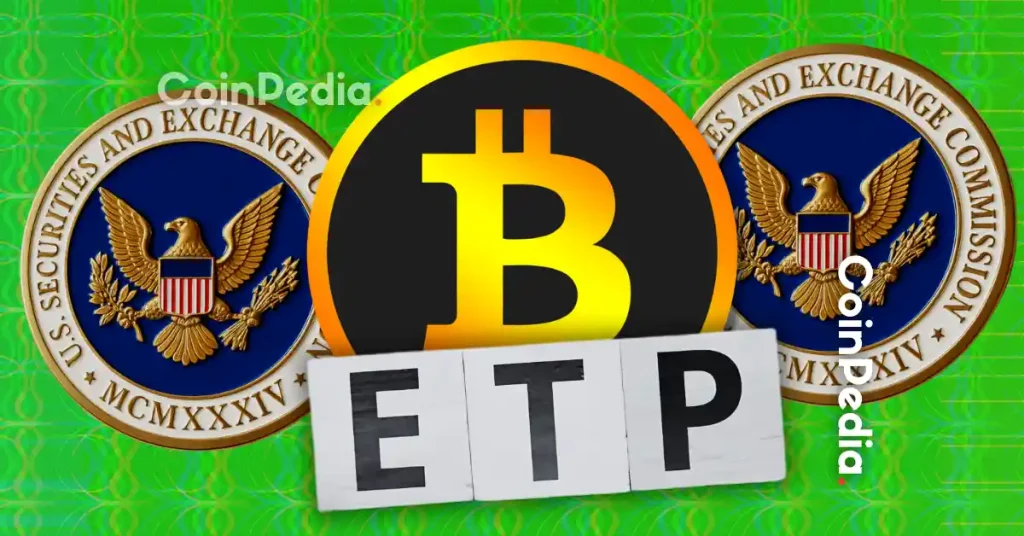Eric Balchunas calls exchange-traded funds 'tokens with benefits'
Senior ETF Analyst for Bloomberg, Eric Balchunas, has touted crypto exchange-traded funds and called them “tokens with benefits,” because they have “everything crypto tokens offer.”
Balchunas was responding to an X post comment from USDM stablecoin business development lead James Meidinger on Wednesday, writing:
“ETFs have everything tokens offer: instant access, minuscule costs, flexibility, and yield (you can totally lend out ETFs). But with added benefits that tokens don’t have: regulatory protections (huge), anonymity, and a 1-800 number.”
Before the discussion started, the Bloomberg analyst had mentioned that 74 ETFs had debuted in just one month, bringing total launches for the year 55% higher than last year’s pace.
“Another month, another all-time record for ETF (aka tokens with benefits)…likely headed towards 1,000 or 4/day. Head spinning,” he wrote.
Crypto community discusses ‘ETF better than tokens’ theory
Meidinger did not categorically deny the “token with benefit” sentiment, but he reminded Balchunas that Cardano had several similar token projects.
“Tokens with benefits… nice, we have those in Cardano as well,” he said, listing NMKR, Strike Cardano, Snek, Surf, Hoskytoken, FluidTokens, USDM, and Danogo Finance. “Combine that with a possible altseason and who knows,” he added, which prompted a response from the ETF analyst.
Other community members who took issue with the Bloomberg analyst’s words argued that while ETFs mimic some aspects of tokens, they differ in philosophy.
“A token is permissionless code; an ETF is custodial compliance. One is math as law, the other is law wrapped around math. The question is simple: do you want assets that obey physics, or assets that obey regulators?” a commenter asked.
Balchunas countered by saying decentralization and permissionless systems are “huge” for bitcoin, but not as much for other blockchains.
The naysayer pressed further, asking the analyst to explain why “every financial crisis of the last 50 years” happened in the watch of regulated custodians.
“ETFs wrap risk in law, but law bends under political pressure. Bitcoin’s code does not. Which foundation survives a sovereign debt collapse: assets backed by signatures of politicians, or assets backed by thermodynamics?” they asked, which Balchunas did not reply to.
Another user countered that ETFs could never fully match token flexibility, arguing that ETFs are not tradeable 24 hours a day, and they can’t run in a P2P exchange in a “non-censurable way.”
Balchunas disagreed, saying: “You can trade ETFs around the clock in many cases, and that. Many exchanges are moving to longer hours, too. But 99% of normal investors don’t need to trade that addictively.”
ETFs week of red continues, outflows for the second consecutive day
Even though Balchunas is positive about the funds’ market outlook for the coming months, this week has been a bloodbath for spot crypto ETFs. Both bitcoin and ether ETFs extended their losing streaks on Tuesday, off a forgetful start to a week that saw the funds shed over $400 million in assets.
According to Farside Investors data, Bitcoin ETFs saw $103.61 million in outflows, the second straight day of withdrawals. Fidelity’s FBTC led the downturn, losing $75.56 million, followed by Ark 21Shares’ ARKB with $27.85 million and Bitwise’s BITB with $12.76 million.
Small inflows came into Invesco’s BTCO ($10.02 million) and BlackRock’s IBIT ($2.54 million), but they did little to offset the wider redemptions. Net assets fell to $147.17 billion, with $3.16 billion traded during the day.
Ether ETFs posted more collective outflows of $140.75 million, led by Fidelity’s FETH $63.40 million, and Grayscale’s Ether Mini Trust $36.37 million exit.
Don’t just read crypto news. Understand it. Subscribe to our newsletter. It's free.
You May Also Like

Bloomberg’s Eric Balchunas Sees 200 Crypto ETPs by 2026 Amid Market Frenzy

Audrey Tang: Infrastructure has been gradually improved, and Ethereum should focus on application implementation in the next ten years
